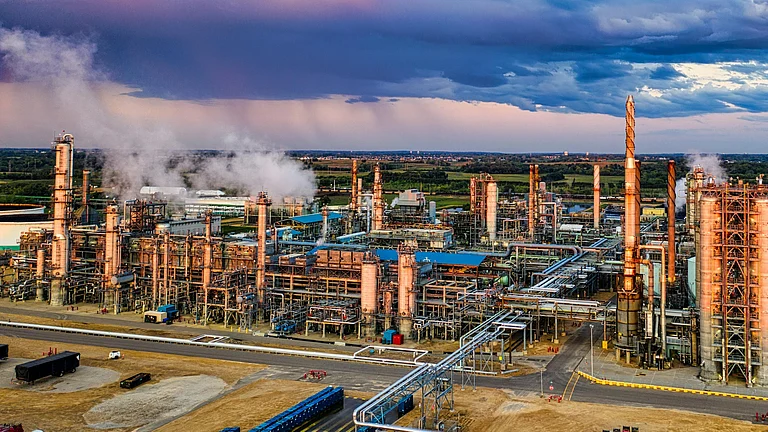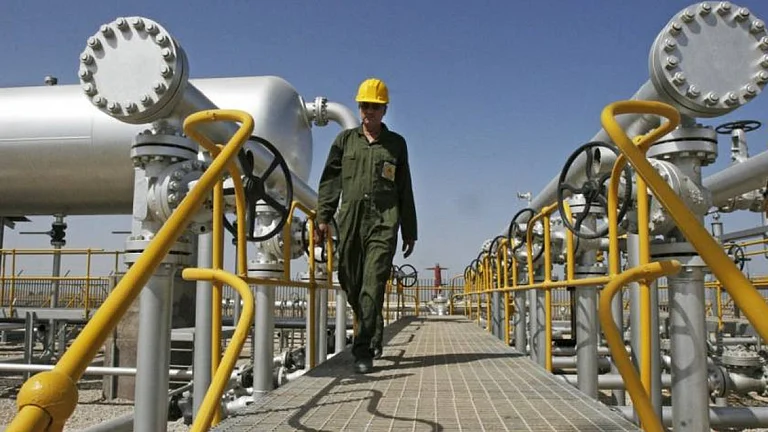Israel Strikes Lebanon: Just when investors were celebrating the Federal Reserve's rate cut decision and pushing markets to new highs, the geopolitical conflict triggered by the Israeli strikes on Lebanon prompted investors to take a cautionary tone. This is the second such incident following the pager explosion last week.
Crude oil prices have already taken a hit and global markets are now on a flat trajectory, post the attack. The performance of Indian markets was no exception as they followed similar cues. On Tuesday, domestic benchmark indices moved within a range-bound zone after hitting new highs. The BSE Sensex crossed the 85,000 mark, whereas NSE Nifty got close to the 26,000 level mark. On the other hand, gold prices and the volatility index steadily surged indicating a concerning tone among investors.
Analysts believe that any escalation in the ongoing conflict in West Asia, can spell trouble for not just the stock market investors but the broader economy as well.
A Step Back for Markets?
Markets are witnessing one of the strongest rallies at the moment. With the rebounding interest of foreign institutional investors (FIIs) coupled with the news of India surpassing China for the first time ever in the MSCI Emerging Markets Index, the broader outlook has remained positive for the better part of the year now. Even sectoral indices have performed well alongside the primary market seeing a heightened investor interest.
As of September 20, foreign portfolio investors (FPIs) invested nearly Rs 33,690 crore in Indian equities according to data from the National Securities Depository (NSDL). This brings the total FII investment in India to around Rs 76,580 crore so far in 2024.
While valuation concerns have been well present in the market, analysts highlighted that the preference for quality and fair value is increasing among investors. This was visible in the continuous rise in Bank Nifty for the eighth straight session. So far this month, Nifty Bank has delivered a return of more than nearly 5.15 per cent. Benchmark Nifty, on the other hand, has delivered a return of 2.76 per cent.
The Federal Reserve's rate cut decision was perhaps a major factor behind the larger bullish sentiment. However, analysts believe that investors should be watchful about what is being played out in the geopolitical field.
"The serious global geopolitical concern continues in the West Asia where things are getting worse. Israeli strikes on Lebanon have killed hundreds of people triggering concerns. Crude has inched up. Gold and the volatility index are moving up reflecting anxiety. However, the market remains resilient and the undertone continues to be bullish. Investors have to take a call based on these two trends," said Dr. V K Vijayakumar, chief investment strategist, Geojit Financial Services.
Even earlier this year, when the Israel-Palestine war intensified, the prices of the yellow metal surged sharply, touching the Rs 75K level mark.
Caution Ahead for the Economy?
In the financial year 2022-23, the total volume of trade between India and Lebanon totalled $595mn. Indian exports to Lebanon stood at $403mn, while imports from Lebanon amounted to $92mn, as per data from the Indian government website. Quite evidently, any disruption to the trade figures between both nations is unlikely to have a significant impact on India's economy.
However, the impact of crude oil prices owing to the conflict in West Asia can have a substantial impact on the economy. "The combination of the Israeli strikes on Lebanon and the ongoing Russia-Ukraine war is creating a perfect storm for global crude oil prices. West Asia remains a critical hub for oil supply, and any further instability could disrupt the already fragile balance affected by sanctions on Russian oil exports," said Narinder Wadhwa, managing director and CEO of SKI Capital.
It’s worth noting that just a month ago, global crude oil prices dropped sharply below $70 per barrel. The volatility in commodity prices can severely impact the country's trade balance.
Higher crude prices would not only increase inflationary pressures but also raise the cost of production and transport across sectors, from agriculture to manufacturing, Wadhwa added. "With energy and commodity imports becoming costlier, India’s trade deficit could widen, putting additional pressure on the rupee and slowing down economic growth," he said.
Aamir Makda, commodity and currency analyst at Choice Broking said that there might be an impact on the prices of export commodities like cotton, wheat, soybean, rubber in India since the conflict involves global trade route along with supply chain.
Manish Chowdhury, head of research, StoxBox advised people to monitor the West Asia situation closely as the longevity of the conflict would definitely weigh on the economic prospects of the country as India continues to be a major oil-importing nation.
Despite the well-present euphoria post the Fed's rate cut decision, the geopolitical issues might have a lasting impact. "Geopolitics, rather than finance itself, would determine the direction of the global economy in the immediate future," Jamie Dimon, chairman and CEO, JP Morgan told the Economic Times in an interview.
As for now, the mood of the market remains largely optimistic, whereas the economic outlook will depend on how the situation in West Asia shapes out in the coming time.
































